- How Much Weight Can You Realistically Lose in 3 Months? - January 14, 2024
- How To Lose 1kg a Week (Guaranteed) - August 20, 2023
- How To Count Calories (or Estimate) and Stay on Track When Eating Out at Restaurants - July 25, 2023
You’ve probably been told by Karen from accounts that you ‘need’ to do 10,000 steps a day to lose weight.
This is wrong.
There is no ‘magic’ amount of steps per day that will result in weight loss. Weight loss is the result of burning more calories than you take in over a long period of time. Walking can absolutely help you acheive this, but it doesn’t have to be 10,000 steps per day. 10,000 steps per day isn’t guaranteed to make you lose weight, in fact you could quite easily do 10,000 steps per day and still gain weight if you were eating too many calories.
So, whether or not you lose weight isn’t just dictated by how many daily steps you do; but increasing the amount of steps you do each day can definitely help with weight loss (provided your calorie intake stays the same).
HOW MANY CALORIES DOES WALKING BURN?
The steps to calorie converter chart below shows roughly how many calories are burned at different body weights for different amounts of steps.
Unsurprisingly, the more steps you do, the more calories you’ll burn – but what you may not have realised is, the heavier you are, the more calories you’ll burn walking – this is because your body requires more energy to move its own mass around.
So, if you weighed 70kg, you’d need to walk 15,000 steps to burn 600 calories.
If you weighed 70kg and did 10,000 steps, you’d burn 400 calories.
So, if you weighed 70kg and did 10,000 steps every day, you’d burn 2,800 calories per week, which translates to 3lbs of weight loss in a month.
| 50kg | 60kg | 70kg | 80kg | 90kg | 100kg | 110kg | 120kg | |
| 1000 STEPS | 30 | 35 | 40 | 46 | 52 | 58 | 64 | 69 |
| 2000 STEPS | 60 | 70 | 80 | 92 | 104 | 116 | 128 | 138 |
| 3000 STEPS | 90 | 105 | 120 | 138 | 156 | 174 | 192 | 207 |
| 4000 STEPS | 120 | 140 | 160 | 184 | 208 | 232 | 256 | 276 |
| 5000 STEPS | 150 | 175 | 200 | 230 | 260 | 290 | 320 | 345 |
| 6000 STEPS | 180 | 210 | 240 | 276 | 312 | 348 | 384 | 414 |
| 7000 STEPS | 210 | 245 | 280 | 322 | 364 | 406 | 448 | 483 |
| 8000 STEPS | 240 | 280 | 320 | 368 | 416 | 464 | 512 | 552 |
| 9000 STEPS | 270 | 315 | 360 | 414 | 468 | 522 | 576 | 621 |
| 10000 STEPS | 300 | 350 | 400 | 460 | 520 | 580 | 640 | 690 |
| 11000 STEPS | 330 | 385 | 440 | 506 | 572 | 638 | 704 | 759 |
| 12000 STEPS | 360 | 420 | 480 | 552 | 624 | 696 | 768 | 828 |
| 13000 STEPS | 390 | 455 | 520 | 598 | 676 | 754 | 832 | 897 |
| 14000 STEPS | 420 | 490 | 560 | 644 | 728 | 812 | 896 | 966 |
| 15000 STEPS | 450 | 525 | 600 | 690 | 780 | 870 | 960 | 1035 |
SO HOW MANY STEPS SHOULD I DO?
This will of course vary from person to person, but let’s take an 80kg, 6ft 40 year-old male that currently does zero steps, and eats 2,000 calories a day as an example.
Based on the Mifflin-St Jeor Formula (see below), this average middle-aged guy would burn around 2000 calories per day
Let’s call this bloke Ian and say he wants to drop 5kg before a wedding on the 1st of July and he has two months (May and June) to do it.
In order to drop 5kg, he needs to create a 38,500 calorie deficit.
Over two months, that’s about 640 calories per day.
It’s very difficult to say how many calories any given individual would burn by walking, but let’s say for Ian, 10,000 steps burns about 400 calories.
Therefore, doing 10,000 steps a day would burn 24,000 calories over 2 months, which equals about 3kg of weight loss. This is a bit off his target of 5kg, so he’d have to create an additional 240 per day calorie deficit on top of that, he could do this either by doing more steps, or eat a bit less everyday.
15,000 steps would theoretically burn 36,000 calories over that 2 month period (600 calories per day), which would theoretically burn 4.6kg – much closer to his target.
As mentioned, if he doesn’t want to do those extra steps he could just do the 10,000 steps and eat 240 FEWER calories per day, which is pretty much the equivalent of a Snickers everyday.
Here’s how that looks on a graph (I’m pretending that he started doing his 15,000 daily steps in May, but have included April for context.
In reality, this graph would be all over the place as the calories burned and calories in will fluctuate every day.
Also, he might choose to vary the amount of steps he does each day, so long as he averages 15,000, the result will be the same.
You can see from my steps charts in Apple Health that they’re all over the place even throughout the year.
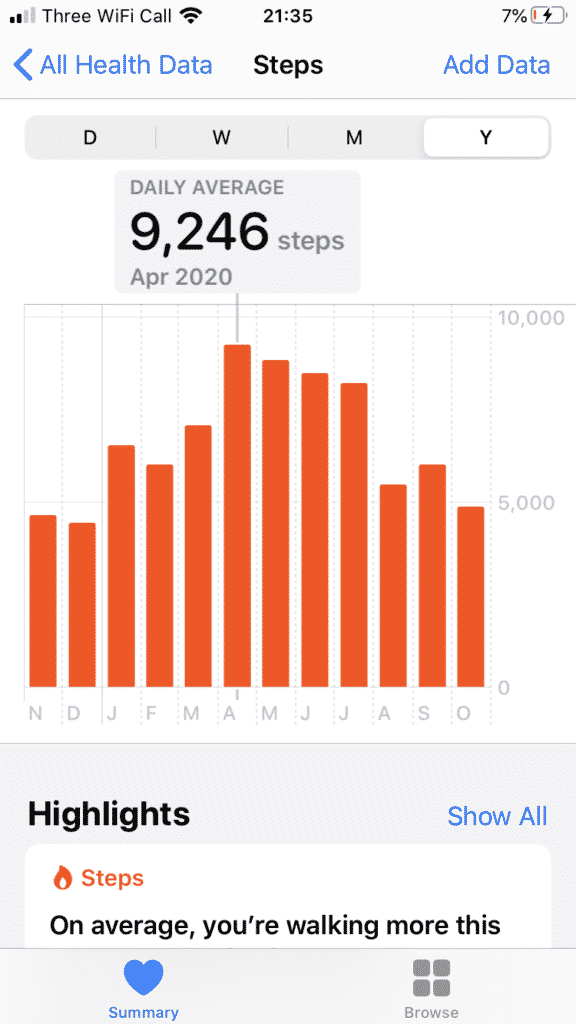
WILL 10,000 STEPS A DAY MAKE YOU LOSE WEIGHT?
As we can see from the example above, going from zero to 10,000 steps per day would absolutely make Ian lose weight (3kg over 2 months to be precise) but this is ONLY if he carries on eating the same amount of calories each day.
We know from the example that 10,000 steps a day would burn roughly and extra 400 calories a day, but what if Ian ate an extra 400 calories a day?
Well, in theory he wouldn’t lose any weight at all, he’d just stay the same.
FYI, 400 calories a day is EASILY done, that’s a medium Latte and a ‘chcoclate twist’ (whatever that is) from Costa everyday
As you can see there are plenty of other tasty snacks to choose from that are way higher in calories.
So no, doing 10,000 steps a day definitely doesn’t guarantee weight loss, it’s all about your overall calorie balance.
Of course, that’s a bit of a silly example because most people looking to lose weight wouldn’t consciously start eating more, for most people walking is a great form of exercise that’s really effective for weight loss.
WHAT DOES THE SCIENCE SAY?
There is a wealth of scientific evidence to support the efficacy of walking, this 12 week study done in Thailand on 25 overweight individuals found that doing 10,000 steps per had a significant impact on body weight. On average throughout the duration of the study, bodyweight decreased by 1.53kg, doing the 10,000 steps also had a significant positive impact on mental health, lowering anxiety, depression and anger across the board.
Another study carried out on 363 participants over an 18 month period also found strong correlations with higher numbers of daily steps and greater weight loss. The study suggested that there was an additional 0.21 kg of weight loss across the length of the study with each additional 1,000 total steps·day.
While the body of evidence pointing towards increasing steps being a good thing for both physical and mental health is undeniable, common sense should also dictate that more activity if of course going to result in more weight loss (all else being equal), of course the presence of a calorie deficit is also required.
WHY WALKING IS BETTER THAN RUNNING FOR BURNING CALORIES
Walking as a form of exercise that’s come to the fore of late, looking at the Google Trends graph for ‘10,000 steps’ and other related terms; it’s clear to see that people perceive 10,000 to be a ‘magic’ number of steps that will result in guaranteed weight loss
We know there’s nothing special about doing 10,000 steps per day, or any other number for that matter, but we do know that walking is a very efficient way of burning calories.
You might think that sounds ridiculous when it’s pretty obvious that running burns a lot more calories than walking, but the key thing about walking is that it’s easy to repeat frequently, which means it’s sustainable.
What the hell does that mean?
If Ian burns 400 calories by doing 10,000 (about 5 miles) steps of walking, it’s likely he’ll burn about 600 calories by running the same distance, in the same time (at a speed of 5mph, if we’re saying his 10,000 steps take him an hour to walk).
That’s 50% more calories, so why not just run everyday instead of walking?
Because running is s**t.
Running comes with a lot more ‘baggage’ than walking, what I mean by that is that it requires more ‘inputs’ and prep than walking does, for example;
- Psyching yourself up
- Putting your running gear on
- Thinking about your route (does it lend itself to a run?)
- Do you need to be anywhere straight after (you don’t want to turn up covered in sweat)
- Considering the weather – running is even less fun when it’s really hot or really cold
It also means doing lots of extra ‘stuff’ after your run;
- Clothes need to go straight in the wash
- You’ll need to shower straight away
- If you’ve been running on roads or pavements your joints and bones will have taken a hammering (they might be sore the next day)
- You’ll be knackered and unlikely to want to do anything for the rest of the day
- You’ll be more hungry and therefore likely to over eat
The final two points are the most important.
If you go for a run, it’s likely to make you lazy for the rest of the day which means you might miss out on your regular weight training session, or it might just be that you’re flat out on the sofa doing nothing, where you’d otherwise be moving around. So yes, you’ve burned an extra 200 calories than you would have walking, but by not moving for the rest of the day you could be missing out on burning 200 calories that you otherwise would have.
When it comes to hunger, because running is more intense than walking, it’ll make you hungrier, so although you’ve burned an extra 200 calories, you could easily mitigate that by eat a few biscuits, or a couple of bits of fruit (more likely the biscuits lol).
You might think the answer is then to just run a few times a week, the problem with that is, even if you run 4 times a week, you’ve still not burned the same amount of calories than you would if you walked 7 days a week.
| MON | TUES | WED | THURS | FRI | SAT | SUN | TOTAL | |
| Walk | 400 | 400 | 400 | 400 | 400 | 400 | 400 | 2800 |
| Run | 600 | 600 | 600 | 600 | 2400 |
When you consider the two points above i.e. the fact that you’re likely to be lazier and eat more after running, you may as well just cut your losses and go fo the walking option.
It’s easier and more sustainable.
Am I saying don’t run?
Obviously not.
If you enjoy running, go for it, it’s great for cardiovascular fitness, but in my opinion, walking is superior from a weight lot point of view.
This study published in 2008 agrees – carried out over 15 years almost 5000 people (men and women aged 18-30), it found that weight gained occurred for all participants, but those that walked regularly gained on average 8kg across the 15 year period.
That’s huge, it means that regular walking kept off 0.5kg on average per year over the period the study concluded that;
“an increase in walking over the early to middle adult years was associated with less weight gain over time and an increased likelihood of weight loss and maintenance compared with weight gain”
Gordon-Larson et al
HOW TO INCREASE THE NUMBER OF CALORIES YOU BURN THROUGH WALKING
If you do want to ‘supercharge’ your walk, without the admin nightmare of doing a run, there are a few aspect you can modify to ensure you burn a few more calories.
Speed
You don’t need to be a genius to work out that the faster you walk, the more calories you’ll burn.
Incline
If you walk up a steep hill, you’ll burn more calories, of coure you’’ presumably come back down again, but the downhill won’t negate the extra energy you expend going up. The steeper the climb, the more calories you’ll burn
Extra Resistance
One for the pros, small ankle and wrist weights will mean you burn more calories because you’re working harder to move more mass around. For an authentic 80s experience, put on a shell suit and carry some small dumbbells around. If anyone makes fun of you, can use them to knock them out.
Surface
Walking on softer surfaces like grass or sand will mean you need to work harder to propel yourself along. If you’re lucky enough to live near a beach, walk there. For the rest of us, a muddy field will have to do.
HOW TO GET TO 10,000 STEPS PER DAY
The first thing to mention is that you don’t need to arbitrarily taregt 10,000 steps a day; this is NOT a magic number that will suddely spark a lot more weight loss than doing 9,999 steps per day.
First of all, set a realistic, achievable step target that fits in with your lifestyle, it could be 5,000 steps a day, 8,000 steps a day, or even over 10,000 per day, the actual number doesn’t matter so much – being able to adhere to it definitely does!
Saying you’re going to do 10,000 steps a day is easy enough, but how do you actually get there? For a lot of people working in sedentary jobs, 10,000 steps sounds like a daunting target, and if you don’t currently make a conscious effort to walk at all, you’re going to have to make some pretty big changes if you want to hit 10,000.
The good news however is that you don’t need to do that 10,000 in one hit (which probably equates to around 1.5-2 hours walking for the average person), there are plenty of ways you can incorporate steps into your daily routine which means they’ll rack up, getting you closer to that target;
- Take the stairs instead of taking the lift or escalator
- Park slightly further away from where you’re going
- Get up and walk around when you’re on the phone
- Go shopping yourself instead of getting delivery or click and collect
You’ll also need a way to track your steps – there are tons of wearables out there that do a great job of this, some of these include;
- Fitbit
- Apple Watch
- Garmin
- Jawbone
- Samsung Health Watch
- Aura Ring
- A good old fashioned pedometer
It really doesn’t matter what you chose, they’re all great so pick one and stick with it. My recommendation? The Fitbit Charge HR (I think they’re on the 4th generation now). These are relatively cheap (around £100), the battery lasts for 5 days and they only need charging every two hours, and they’re quite small and slick meaning they’re never ruin your outfit by making you look like inspector gadget.
The Fitbit app is also excellent, it’s easy to use even for technophobes and the best but is that you can add friends from Facebook who also have Fitbit and have daily or weekly walking contests with them to see who can get the most steps (if you’re like me you’ll just amass dozens of steps because you have to win).
ARE STEPS ALONE ENOUGH TO LOSE WEIGHT?
No. In order to lose weight, you HAVE to be in a calorie deficit. Doing additional steps can help you achieve a deficit, but if you were to do more steps and eat more calories, you could easily stay the same weight, or even gain weight. In order to find out how many calories you should eat and how many steps you should take to achieve weight loss, you should speak to an online weight loss coach like me!
SUMMARY
There’s no perfect number of steps you should do each day, it all depends on your goal.
Regardless of that, walking is a free, easy and sustainable activity that everyone should do at least a few times a week.
REFERENCES
Fifteen-year longitudinal trends in walking patterns and their impact on weight change: https://www.ncbi.nlm.nih.gov/pmc/articles/PMC2715291/
Pattern of Daily Steps is Associated with Weight Loss: Secondary Analysis from the Step-Up Randomized Trial: https://www.ncbi.nlm.nih.gov/pmc/articles/PMC5970037/
Effects of 10,000 steps a day on physical and mental health in overweight participants in a community setting: a preliminary study: https://www.ncbi.nlm.nih.gov/pmc/articles/PMC5015672/

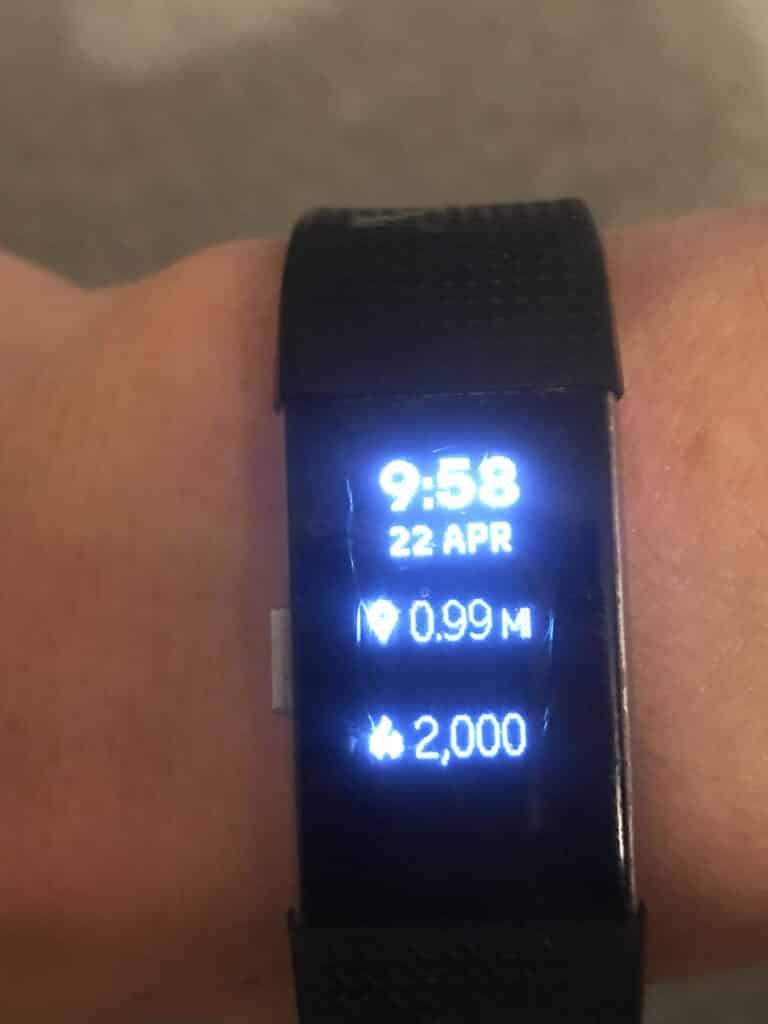

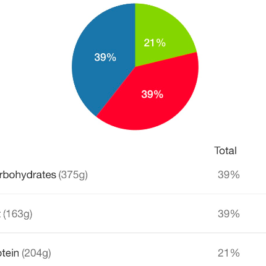
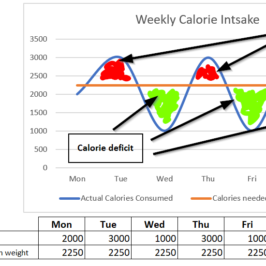

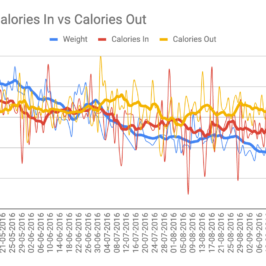

Leave a Reply